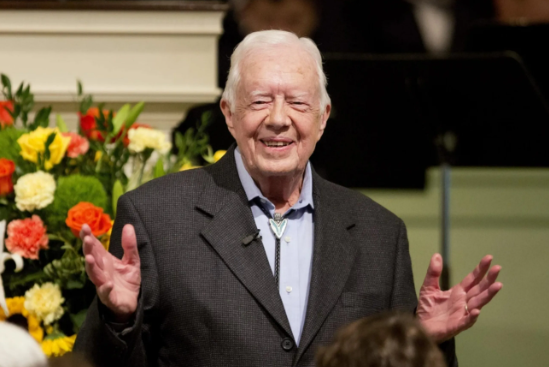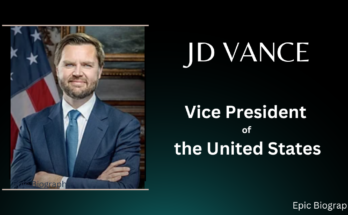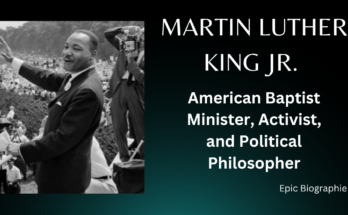Who is jimmy Carter?
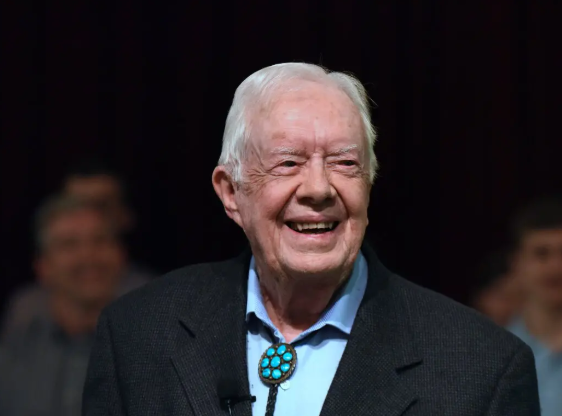
Jimmy Carter, the 39th President of the United States, renowned not only for his time in office from 1977 to 1981. But also for his lifelong commitment to humanitarian efforts and diplomacy. A member of the Democratic Party, Carter has distinguished himself as a statesman dedicated to promoting peace. Advancing human rights, and tackling global health issues. His post-presidency work earned him the Nobel Peace Prize in 2002. For making him a revered figure both in and out of political circles.
| Attribute | Value |
|---|---|
| Name | Jimmy Carter |
| Date of birth | October 1, 1924 |
| Place of birth | Plains, Georgia, U.S. |
| Parents | James Earl Carter Sr. and Bessie Lillian Gordy |
| Education | United States Naval Academy (B.S.) |
| Occupation | 39th President of the United States (1977-1981), Politician, Humanitarian |
| Notable cases | Camp David Accords, Panama Canal Treaties, Human Rights Advocacy |
| Awards and honors | Nobel Peace Prize (2002), Presidential Medal of Freedom (1999), numerous honorary degrees |
| Personal life | Married to Rosalynn Smith Carter (m. 1946), 4 children |
| Another name | James Earl Carter Jr. |
| Profession | Former President of the United States |
| Height | 5 ft 9 in (1.75 m) |
| Weight | Not publicly available |
| Eye Color | Blue |
| Hair Color | Gray (formerly brown) |
| Debut | Political career began in the Georgia State Senate (1963) |
| Date of Birth | October 1, 1924 |
| Age | 99 years old (as of July 4, 2024) |
| Birthplace | Plains, Georgia, U.S. |
| Zodiac sign | Libra |
| Nationality | American |
| Hometown | Plains, Georgia, U.S. |
| School | Plains High School |
| College/University | United States Naval Academy |
| Educational Qualification | Bachelor of Science in Naval Engineering |
| Food Habit | Not extensively documented, but known to enjoy Southern cuisine |
| Hobby | Fishing, reading, painting, humanitarian work |
| Marital Status | Married |
| Affairs/Girlfriend | N/A |
| Spouse | Rosalynn Smith Carter |
| Parents | James Earl Carter Sr. and Bessie Lillian Gordy |
| Siblings | Gloria Carter Spann, Ruth Carter Stapleton |
| Car Collections | Not publicly documented |
| Bike Collections | Not publicly documented |
| Salary/Income | As former President, receives a pension and other benefits |
| Assets | Not publicly disclosed in detail |
| Net Worth | Estimated to be in the millions of dollars |
| N/A | |
| @jimmycarter [invalid URL removed] | |
| N/A | |
| YouTube | Jimmy Carter |
| IMDb | https://www.imdb.com/name/nm0141699/ |
Early-Life Of Jimmy Carter
James Earl Carter Jr. was born on October 1, 1924, in Plains, Georgia, a small rural town that shaped his early worldview. Raised in a modest farming family, Carter grew up during the Great Depression, an experience that instilled in him a strong work ethic and a deep appreciation for community values. His father, James Earl Carter Sr., a successful local businessman and farmer. While his mother, Lillian Gordy Carter, a registered nurse known for her compassion and progressive views.
Carter attended the United States Naval Academy in Annapolis, Maryland, graduating in 1946. He served in the Navy as a submariner, working on some of the earliest nuclear-powered submarines under Admiral Hyman Rickover, an experience that would later influence his views on technology and energy policy.
Career Of Jimmy Carter
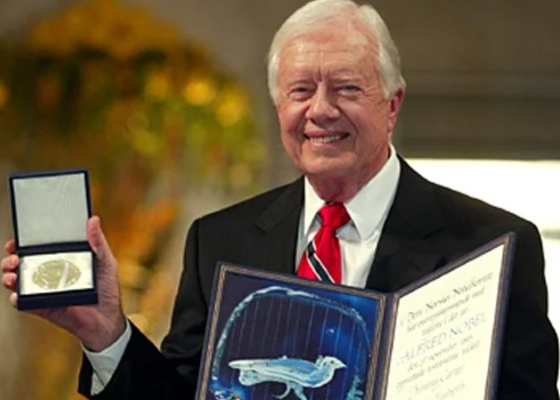
Carter returned to Plains in the early 1950s after his father’s death, taking over the family peanut farming business. He soon became active in local politics, serving on various civic boards before elected to the Georgia State Senate in 1962. His rise in politics marked by his commitment to civil rights and government reform. Which set him apart in the Deep South during a turbulent era.
In 1970, Carter elected Governor of Georgia, where he emphasized environmental conservation, government reorganization, and racial integration. His progressive stance on civil rights earned him both praise and criticism. By 1976, Carter emerged as a dark horse candidate for the U.S. presidency, leveraging his outsider status. And promise to restore trust in government following the Watergate scandal. He won the election, defeating incumbent Gerald Ford.
During his presidency, Carter prioritized human rights in foreign policy, brokered the historic Camp David. Accords between Egypt and Israel, and faced significant domestic challenges, including inflation, an energy crisis, and the Iran hostage situation. Despite notable achievements, his administration was marred by economic difficulties and international crises. Leading to his defeat by Ronald Reagan in the 1980 election.
| Career Stage | Position/Role | Dates | Key Accomplishments |
|---|---|---|---|
| Early Career | Naval Officer | 1946-1953 | Served in the U.S. Navy, including submarine service. |
| Business | Peanut Farmer & Warehouse Owner | 1953-1962 | Managed the family business in Plains, Georgia. |
| State Politics | Georgia State Senator | 1963-1967 | Served in the Georgia State Senate. |
| State Politics | Governor of Georgia | 1971-1975 | Implemented significant reforms in state government. |
| Presidency | 39th President of the United States | 1977-1981 | Key accomplishments: Camp David Accords, Panama Canal Treaties, human rights emphasis in foreign policy. |
| Post-Presidency | Humanitarian Work | 1981-Present | Founded The Carter Center, focused on global health, democracy, and conflict resolution. |
Policies By Jimmy Carter
| Policy Area | Key Policies | Description |
|---|---|---|
| Foreign Policy | Human Rights Emphasis: Centered U.S. foreign policy around promoting human rights globally. Camp David Accords (1978): Brokered a peace treaty between Egypt and Israel. Panama Canal Treaties: Negotiated the transfer of the Panama Canal to Panama. <br> Normalization of Relations with China: Continued the process of establishing diplomatic relations with the People’s Republic of China. | Prioritized moral diplomacy and sought to address global issues like human rights and conflict resolution. |
| Energy | National Energy Act (1978): Established energy conservation measures, promoted energy efficiency, and supported renewable energy development. | Addressed the energy crisis of the 1970s by focusing on conservation and alternative energy sources. |
| Economy | Economic Recession: Faced a severe economic recession during his presidency, marked by high inflation and unemployment. | Implemented policies to combat inflation, but struggled to effectively address the economic downturn. |
| Environmental Protection | Created the Department of Education: Established a federal department dedicated to improving education in the United States. | Focused on environmental protection and conservation, including promoting renewable energy and establishing national monuments. |
| Social Issues | Appointed the first woman to the Supreme Court (Sandra Day O’Connor): Made significant strides in promoting gender equality. | Addressed social issues like education, civil rights, and women’s rights. |
Achievements Of Jimmy Carter
Despite the challenges during his presidency, Carter’s achievements were significant. The Camp David Accords, which led to a peace treaty between Egypt and Israel, remain one of the most enduring diplomatic successes in the Middle East. Carter also established the Department of Energy and the Department of Education, reflecting his commitment to modernizing the federal government.
In the years following his presidency, Carter’s achievements only grew. He founded The Carter Center in 1982, a nonprofit organization aimed at advancing human rights and alleviating suffering. Under his leadership, the center has played a key role in monitoring elections, combating diseases like Guinea worm, and promoting peace in conflict zones.
In 2002, Carter was awarded the Nobel Peace Prize for his decades of work in promoting peace and democracy around the world.
Controversies Of Jimmy Carter
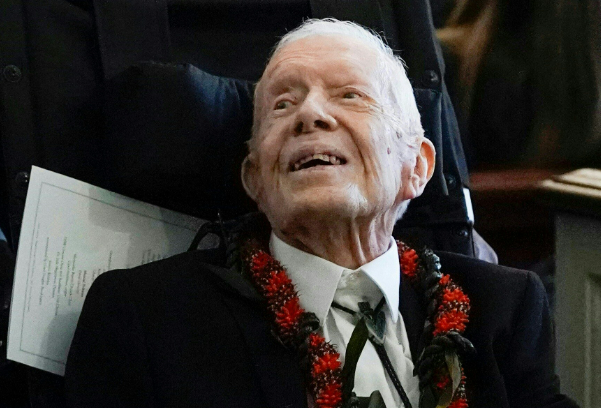
Carter’s presidency was not without controversy. One of the most notable was his handling of the Iran hostage crisis, where 52 American diplomats and citizens were held captive for 444 days. Despite his efforts to secure their release through diplomacy and a failed rescue mission. The crisis significantly impacted his re-election campaign and public perception.
Another point of contention was his administration’s response to the energy crisis, including his push for energy conservation and alternative energy sources. While visionary, his policies were seen by some as ineffective in addressing immediate economic concerns.
Carter also faced criticism for his stance on the Soviet invasion of Afghanistan in 1979, which led to the U.S. boycott of the 1980 Moscow Olympics. Although viewed as a principled stand against Soviet aggression, the move was controversial and had mixed results.
Family Of Jimmy Carter
Carter’s personal life has been marked by a strong and enduring partnership with his wife, Rosalynn Carter, whom he married in 1946.
| Family Member | Relationship to Jimmy Carter |
|---|---|
| Rosalynn Carter | Wife |
| Jack Carter | Son |
| Chip Carter | Son |
| Jeff Carter | Son |
| Amy Carter | Daughter |
| James Earl Carter Sr. | Father |
| Bessie Lillian Gordy | Mother |
| Gloria Carter Spann | Sister |
| Ruth Carter Stapleton | Sister |
Relationships Of Jimmy Carter
Carter’s personal life has been marked by a strong and enduring partnership with his wife, Rosalynn Carter, whom he married in 1946. Rosalynn has been an active collaborator in his political and humanitarian endeavors, playing a significant role in initiatives related to mental health and caregiving. Together, they have four children and numerous grandchildren, and their marriage is considered one of the most successful in U.S. presidential history.
Carter has cultivated lasting relationships with world leaders, humanitarian figures, and grassroots activists. His commitment to diplomacy and bridge-building has earned him respect across political and ideological divides.
